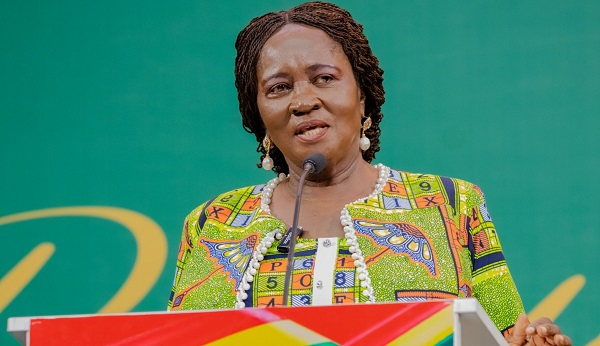Choose Chicago finally has a new head honcho in Kristen Reynolds, formerly the CEO of the tourism agency Discover Long Island. Reynolds will have her work cut out for her and not just because marketing Chicago is a whole lot more complicated than selling Fire Island and the Hamptons. Even as New York recovered relatively quickly from the pandemic, Chicago has been struggling with international tourism.
Anyone who has been around town for a while can remember the days when there were far more foreign languages being spoken on Michigan Avenue. The challenges are self-evident but we’ll tick them off: not enough major new attractions with global heft (like the lost Lucas Museum of Narrative Art); a lack of attention to the retail problems on the Magnificent Mile; lousy sports teams that haven’t spawned another Michael Jordan; transit and other transportation challenges; “teen takeovers” unnerving and sometimes harming tourists; the nagging international perception of Chicago equaling “bang, bang”; the loss of some key international flights (albeit with the arrival of others); insufficient ignition of the city’s massive architectural, historical, cultural and other assets; pandemic hangovers when it comes to the city’s famed late-night scene, especially in the Loop; too much distance from international media; too much politically correct spending of tourism money in the “right” aldermanic wards instead of focusing it on where international visitors really want to go. All that and a certain culture of self-congratulation at Choose Chicago and a bit of Midwestern myopia, too.

We trust Reynolds, a tourism professional and very much not the political hack we feared, is aware of all of that, as well as the huge and beautiful assets on the other side of the ledger. But, frankly, the problems with international tourism are now far greater than anything specifically to do with Chicago. Travel and Tour World, a trade publication, reported Wednesday that studies show inbound international travel to the U.
S. is likely to decline by 5.5% in spending this year.
That might not sound like much but last fall, prior to the election of the most isolationist president in living memory, 2025 was projected as a banner year for the sector, with anticipated spending growth a whopping 16%. Even a 5% decline represents a loss of billions of dollars as international tourists are big spenders. Tourism World, an international forecasting firm based in Oxford, England, wrote in a research briefing late last month that we can expect to see a 9.
4% decline in international visitor arrivals for 2025, led by a 20.2% decline in visitors from Canada. “This loss includes $6.
4 billion of decreased spending in destinations,” Tourism World wrote, “plus $2.5 billion of lost transportation spending.” That’s why airline stocks got hammered this week, including that of Chicago’s hometown (at least for now) United Airlines, and why you are likely to see more flight cancellations as airlines recalibrate to meet demand.
Yet worse, the firm appended a note to its March 27 briefing Wednesday, saying the new, worse-than-expected tariffs announced Wednesday would increase “negative impacts on US inbound travel.” Why is all this happening? If you have to ask, you have not been paying attention. Tourism World used the headline, “Trump Rolls Up Welcome Mat for International Travelers,” and that pretty much says it all.
Crossings at the Canadian-U.S. border have dropped precipitously; 20% fewer Canadians are coming to the U.
S., mostly because they’re angry at Trump disrespecting their country with his “51st state” nonsense. Tourism World said a majority of Brits now have an unfavorable view of the U.
S., as do a majority of Germans, along with French and Danish citizens, all numbers that have shown massive increases since Trump took office. Plus there are genuine fears now of border detentions .
The British press was full of the case of Becky Burke, a clearly benign 28-year-old backpacker who was denied entry to Canada from the U.S. due to the wrong Canadian visa, only then to have U.
S. authorities put her in a detention facility where she languished for well over two weeks. While the full details of the case weren’t clear, it appears that U.
S. agents were worried Burke may have intended to do domestic work for a host family as a way of funding her solo travels, technically against the rules but hardly an egregious or uncommon offense. Burke may have been careless and broken the rules, but she clearly had no intention to stay stateside and is no dangerous criminal.
Stories like her more than two weeks of detention without a clear exit date given ( or so her father told the BBC last month ) are likely to make young “gap year” travelers from Europe and Australasia change their minds about a planned U.S. road trip and pick friendlier nations like Canada instead.
Tourists are discretionary travelers and, notwithstanding its magnetic pull, the U.S. has competition for most of what it offers.
Bermuda is seeing an explosive growth in Canadian visitors. Other Canadians are headed to Europe in greater numbers than before, at the expense of their North American neighbor. We’ll add that the experiences of 2001 and 2008 teach us that second cities like Chicago are more vulnerable to international flight pullbacks; links to capitals tend to be maintained even in recessions, but without that crucial leisure demand, it’s hard to imagine, say, Chicago retaining its typical eight flights a day to London.
(American Airlines had already cut its popular daytime flight.) Foreign governments have been upping their travel warnings, too, especially for transgender travelers, to use one example. This isn’t rocket science: “Leisure travelers have options,” Tourism World wrote, “and negative shifts in sentiment toward the US are expected to adversely impact its global market share.
” So welcome to your new gig, Ms. Reynolds. You will have your work cut out for you.
Submit a letter, of no more than 400 words, to the editor here or email [email protected] ..
Politics

Editorial: Chicago has struggled to regain international tourism. Now that’s coming true for the entire nation.

Donald Trump has torpedoed international tourism. How will this affect Chicago?















